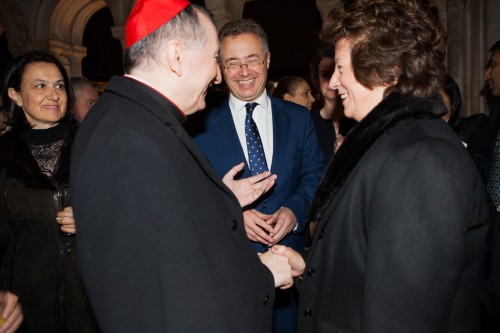
Confrontation across ideological fault lines. Division in Europe. Pessimism about international affairs. You might think I am referring to today’s international situation. But in fact I would like you to cast your mind back forty years to 1975 and the Cold War. Under the cloud of mutually assured destruction, Europe and the wider world needed hope. An event in Helsinki on 1 August 1975, in which the UK and the Holy See were closely involved, provided the first glimmer of light for millions of people that would blaze out in 1989 as the Iron Curtain came tumbling down.
The event was the signing of the Helsinki Final Act, an extraordinary document that re-established the unity of Europe, not through force but through the power of dialogue. The physical barriers between East and West did not come down for another 14 years, but the document was a reminder of Europe’s common roots. The Soviet Union believed it was signing a document that would fix the Cold War frontiers of Europe forever. Instead, it was the key to freedom for all those living under totalitarianism.
At an anniversary event in Rome this week, the Holy See Secretary of State, Cardinal Parolin, reminded the audience that this was the first time that the Holy See had taken part in a major congress of states as a full member since the 1815 Congress of Vienna. And the Holy See’s role was crucial. Its focus in the negotiations towards Helsinki was ensuring that human rights – especially freedom of thought, conscience, religion or belief – were integral to the final document. When one reads the ten guiding Principles of the Final Act, you are reminded that – while still often broken, including in the east of Europe today – they remain fundamental and timeless. They include sovereign equality, territorial integrity, inviolability of frontiers, peaceful settlement of disputes, respect for human rights, and fulfilment of obligations under international law. The Helsinki Principles remain a cornerstone of the international system.
We would do well to remind ourselves of them. In the context of 1975, the Final Act was, in Cardinal Parolin’s words, “an act of hope”, demonstrating that values, clearly expressed, are as important to security as hard power. In the context of 2015, the 40th anniversary reminds us that even in the darkest moments, for example the current crisis in Ukraine, there are fundamental principles of which we must not lose sight.
